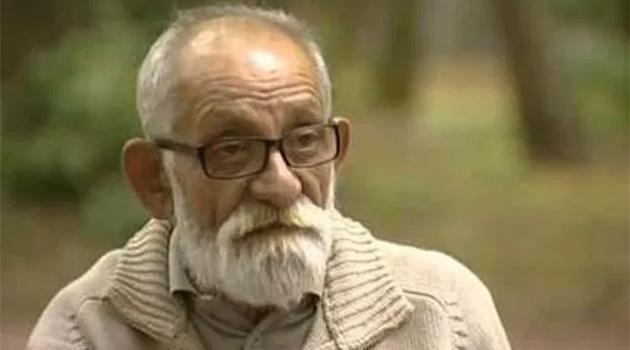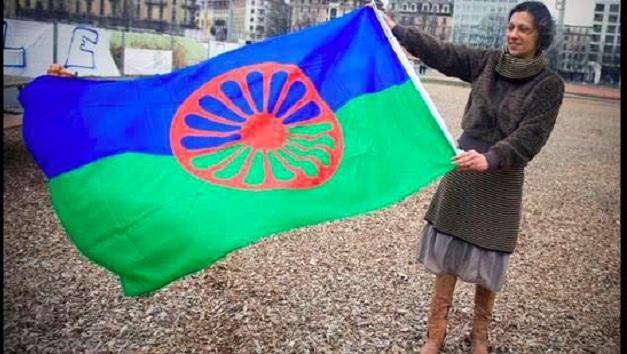Hungary: József "Choli" Daróczi, translator of the New Testament into Romanes, has passed away

At the age of 79 the eminent Romani author, poet, journalist and teacher József Daróczi, known to his loved ones by the familiar Romani nickname “Choli”, passed away in Hungary on 12 May 2018. Mr Daróczi, an all-around gifted artist and charismatic educator, was one of the most eminent Romani figures in Hungarian public life for decades.
Together with several other representatives of his generation Mr Daróczi was behind the birth of the Romani arts and literary elite in Hungary. He was born on 26 May 1939 in the Hungarian village of Bedő.
According to the recollections of his close coworkers and friends associated with the Romani Internet portal RomNet.hu, Mr Daróczi was “the nicest old Romani man on whom one could always rely, he was present at every cultural and public event and spoke about the past, present and future with relish.” His friends have also emphasized how specific his features were – “he wore a white beard and always had a telltale cigarette in his mouth” – and recall both the unusual openness and the stances taken by this matador of Romani cultural life to express his opinions, as he was convinced that only an absolutely sincere person can cultivate human dignity.
The Daróczi family was originally from Rumania and his grandparents grew up at the beginning of the 19th century in age-old Romani societies that were traditional – his grandmother came from the prestigious Lovari group. His grandparents fled to Hungary to avoid a kris, or Romani traditional trial, and their grandson “Choli” was later born there.
In the environment in which his family grew up, the cultures of three different nations lived alongside each other in peace: Hungarian, Roma, and Rumanian, and the members of these groups had the good fortune to have enlightened teachers. “Choli’s” role model from his childhood was a teacher named Gizella.
He did not complete his basic education as a child, but from the moment he left school he experienced a long period of looking for his life’s direction, working for some time as a manual laborer and as a miner. At roughly the age of 20 he decided to work for the Tatabányská Mining Company, where a coworker described to him how it might be possible to emigrate.
During their failed attempt to flee abroad that friend was injured and Mr Daróczi was arrested and sentenced to 10 months in prison. As a political prisoner he shared a cell with a future Hungarian Prime Minister, József Antall.
After doing his time, Mr Daróczi moved to Budapest, where his family had relocated in the interim. Due to his lack of education, he had to once again begin his career as a manual laborer at a railway.
At his new job he found himself in an environment that was determinative of his future fate. He had the good fortune to meet coworkers who greatly appreciated education and knowledge.
Under their influence, he soon applied for night school and completed his eighth grade education. After that he tried his luck at a technical apprenticeship, but soon discovered that he was much more attracted to the humanities and transferred to the Gymnázium Ányose Jedlika college preparatory school.
His interest in the field increased during his gymnasium years through his attendance at literary seminars. Hungarian poet Attila József became his great literary role model, as he is for so many Hungarian educators.
This great proletarian poet inspired “Choli” to his first translations. His then-teacher of literature publicly appreciated his attempt to translate this poetry into Romanes, assigning his translation efforts to the entire class to read and posting them on the school’s notice board.
His next literary activities followed in rapid succession. His translations of Hungarian poetry began to gradually appear in various Hungarian literary periodicals.
He soon began to write his own poetry and dedicated himself to several anthologies of Romani poetry as an editor. As of 1975, Mr Daróczi was a member of the Hungarian Authors’ Club and eventually became Editor-in-Chief of the Romani journals Romano Nyevipe, Amaro Drom and Rom Som.
One of his most significant and, in its day, most extraordinary deeds was his work on a small Hungarian-Romanes dictionary, Zhanes romanes?, as well as his translation of part of the New Testament into the Lovari dialect of Romanes. In connection with his publication and translation work he attempted to revive the Romanes language by introducing neologisms, for example.
His significant career as an educator began in 1972. In order to become a full-time educator, Mr Daróczi completed his education at a teaching college, after which he continued his career as a mentor and teacher of youth, with occasional interruptions, until practically the end of his life.
In the mid-1980s he was elected to lead what was then called the Rural Gypsy Council, after which he continued in 1987-88 as the Chief Secretary of the Hungarian Gypsy Cultural Association. After the fall of communism and the creation of the Hungarian system of minority self-governments he immediately, at the start of the 1990s, became a leader in Budapest’s “Gypsy Self-Government” in the 10th District.
In 1994 he again returned to his career as an educator, beginning to teach Romology (Romani Studies), the Romanes language and Romani history at the Vilmos Apor College. He remained active and tireless in this field later in retirement and as a senior citizen.
József Choli Daróczi was one of the main actors in a significant wave of the Romani ethnoemancipatory movement during the 20th and 21st centuries in Hungary. During his life he met with countless non-Romani and Romani youth whom he educated at children’s camps, technical high schools, student dormitories, colleges and universities.
In the Czech context we can add one more feature of interest: A longtime admirer of his work and a foreign collaborator and correspondent of his was the leading Czech(oslovak) Romani Studies scholar, Associate Professor Milena Hübschmannová of Charles University. József Choli Daróczi passed away on 12 May 2018.
